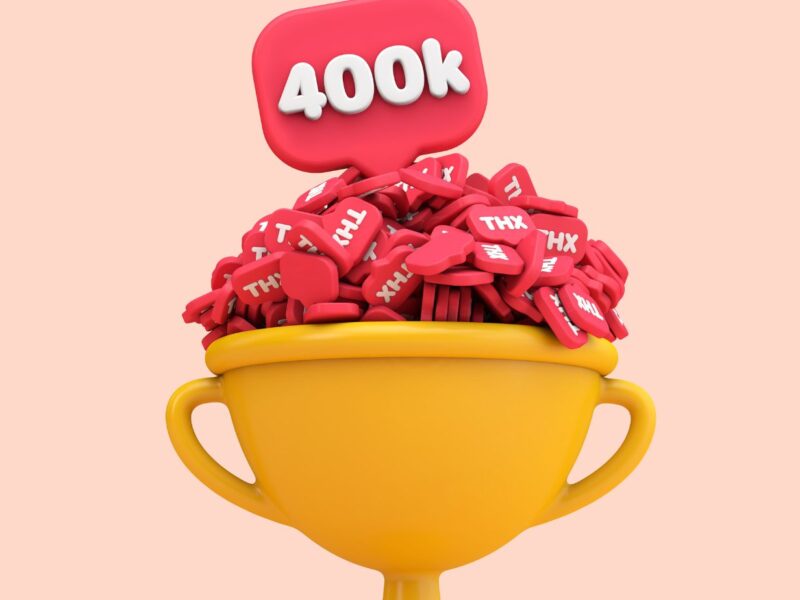Table of Contents
Twitch is a popular live streaming platform with certain policies that users should be aware of to avoid infractions or suspensions. Here are some of the policies you should watch on when using Twitch.
Community Guidelines: Twitch has strict rules against harassment, hate speech, and nudity. Reading and understanding these guidelines is important to avoid violations or punishments.
Copyright Infringement: Streaming copyrighted material on Twitch without permission can result in takedown notices or legal action. Make sure you have the legal right to stream any content.
Branding Guidelines: Twitch has specific guidelines for logos, branding, and advertising. Analyze these guidelines before promoting any brands or businesses on your stream.
Terms of Service: Twitch’s terms cover important topics including account suspension and termination, refunds, and age requirements. It’s essential to read and understand these policies to avoid running afoul.
Following these policies will ensure a positive experience on Twitch while keeping your account in good standing.
Twitch’s Terms of Service
Twitch is one of the most popular streaming services out there, and with it come certain regulations in their terms of service. Knowing these policies and their implications, will ensure you can stream on Twitch successfully and safely.
In this heading, we’ll look at the different Twitch policies you should watch out for.
Understanding Twitch’s policies on hateful conduct and harassment
As a Twitch user, it is important to understand the platform’s policies on hateful conduct and harassment to ensure a safe and inclusive environment for all users.
Twitch’s Terms of Service outline its policies on harassment, hate speech and conduct, and the consequences of engaging in such behavior. Twitch has a zero-tolerance policy towards any conduct that promotes or encourages hatred or discrimination, including but not limited to language, emotes, and usernames.
In addition to these policies, Twitch has tools to help report and moderate inappropriate behavior, including reporting users, chat moderation tools, and blocking users.
Understanding and adhering to Twitch’s policies on hateful conduct and harassment is crucial to creating a safe and welcoming community for all users.
Understanding Twitch’s policies on intellectual property
As a Twitch user, it’s important to understand the platform’s policies on intellectual property to avoid any legal issues or account suspension.
Twitch has strict guidelines regarding the use of copyrighted material and trademarks, including music, images, videos, and games.
To comply with Twitch’s policies, users should avoid streaming or using any content they don’t own or have the legal right to use. Users can also face consequences for playing the music or games they don’t have the required licenses.
Twitch also has a strict DMCA takedown policy; users who violate it can face account strikes or suspension.
As a Twitch user, it’s essential to read Twitch’s Terms of Service and Community Guidelines thoroughly to avoid any policy violations that could result in legal or punitive actions.

Understanding Twitch’s policies on sexual content and nudity
Twitch has strict policies in place regarding sexual content and nudity to ensure a safe and positive experience for all users. These policies prohibit sexual conduct or nudity on the platform, including in avatars, profile pictures, and video content. Additionally, sexually suggestive content, including sexual language or gestures, is prohibited.
If these policies are violated, Twitch has the right to take disciplinary action, including suspending or terminating the user’s account.
When using Twitch, it’s important to read and understand these policies to avoid violations and ensure a safe and enjoyable user experience.
Pro tip: It’s always a good idea to analyze the terms of service and community guidelines of any platform you use to avoid violating the rules and facing consequences.
@lgbt_band_25
When using Twitch, it’s important to stay within the guidelines and policies of the platform. Twitch has provided guidelines to ensure streamers and viewers have a safe and enjoyable experience.
This section will cover the community guidelines and why they are important to follow.
Understanding Twitch’s policies on user conduct
Twitch is a popular live streaming platform with community guidelines and policies to ensure a safe and inclusive environment for all users. Here are some key policies to keep in mind when using Twitch:
1. Hateful Conduct and Harassment: Twitch has a zero-tolerance policy towards hateful conduct, harassment, and discrimination based on race, gender, sexual orientation, and other characteristics. This includes actions such as hate speech, doxxing, and stalking.
2. Nudity and Sexual Content: Twitch strictly prohibits nudity, sexual content, and sexually suggestive content. This includes nudity in video games and other forms of media.
3. Intellectual Property: Users cannot stream copyrighted content without permission, including music, movies, and TV shows.
4. Self-Destructive Behavior: Twitch does not allow self-destructive behavior on its platform, including suicide, self-harm, and drug use.
It is important to analyze Twitch’s community guidelines and policies before using the platform to avoid violations and potential consequences.
Understanding Twitch’s policies on moderation
Twitch’s policies on moderation are designed to create a safe and inclusive community for everyone who uses the platform. Some of the policies that users should watch out for when using Twitch include:
Harassment and hate speech: Twitch has a zero-tolerance policy for any form of harassment or hate speech based on race, gender, sexual orientation, or disability.
Nudity and sexual content: Users are not allowed to share any nudity or sexual content on the platform, and streams that feature such content will be immediately taken down.
Copyright infringement: Users are responsible for ensuring that they have the right to stream all content on Twitch and not infringe on any copyrighted material.
Self-harm and dangerous content: Twitch prohibits sharing any content that depicts self-harm or dangerous behavior that could harm others.
Users who violate these policies may face consequences ranging from a warning, suspension, or even permanent ban from the platform. Therefore, analyzing and following Twitch’s policies is essential to ensure a safe and enjoyable experience.
Understanding Twitch’s policies on safety and security
Twitch has stringent policies on safety and security to ensure a safe and non-toxic environment for its community members. Here are some key policies you should keep in mind when using Twitch:
1. Harassment and hate speech are not tolerated on Twitch. Instead, be respectful and civil towards other community members.
2. Nudity, sexual content, and explicit material are strictly prohibited.
3. Any form of violence, including self-harm and suicide, is prohibited on the platform.
4. Cheating, hacking, and fraudulent behavior are unacceptable on Twitch.
5. Protect the privacy of others at all times.
By abiding by Twitch’s community guidelines and policies, you can help maintain a safe and enjoyable environment for everyone.

Partner Program Policies
If you’re a streamer looking to become part of the Twitch Partner Program, there are certain policies you should watch out for. These policies have been established to protect both the Twitch partner and their viewers and ensure that the Twitch community remains friendly and safe.
This article will examine the policies you should watch out for when using Twitch.
Understanding Twitch’s policies on advertising and sponsorship
Regarding advertising and sponsorship on Twitch, it’s essential to understand and comply with the platform’s Partner Program Policies. These policies outline the rules and regulations for advertising, sponsorship disclosure, and more on Twitch.
Some of the key policies to keep in mind include:
Sponsorship disclosure – If you’re working with a sponsor or promoting a product, you must disclose this to your followers using Twitch’s disclosure guidelines. This ensures transparency and honesty with your audience.
Prohibited content – Twitch has strict rules around the types of content that can be advertised or sponsored, including illegal activities, hate speech, and violence.
Ad format guidelines – Twitch offers several different ad formats, including pre-roll ads, mid-roll ads, and display ads. Understanding the guidelines and best practices for each ad format can help you optimize your ad placement and improve your revenue.
By closely following up on Twitch’s Partner Program Policies, you can ensure that your advertising and sponsorship activities on the platform are compliant and successful.
Pro tip: One should analyze Twitch’s policies occasionally to avoid violations and stay updated.
Understanding Twitch’s policies on revenue sharing and subscriptions
Twitch offers a Partner Program that allows content creators to earn revenue from their streams through subscriptions and ad revenue. However, Twitch has policies regarding revenue sharing and subscriptions that content creators must abide by.
Content creators must have a certain number of viewers and broadcast hours to qualify for the Partner Program.
Twitch has strict rules regarding the use of copyrighted material in streams.
Content creators must follow Twitch’s guidelines for advertising and sponsorships.
Twitch takes a 50% cut of subscription revenue, although this can be reduced for larger partners.
Content creators need to read and understand Twitch’s policies regarding revenue sharing and subscriptions to ensure that they comply with the rules and avoid any potential issues.
Understanding Twitch’s policies on exclusivity
Twitch’s Partner Program Policies outline exclusivity requirements for streamers who wish to join the program. Partners must agree to stream exclusively on Twitch and remove their content from other platforms for 24 hours after it has been broadcasted. This rule protects the platform’s viewer base and provides better monetization opportunities for Twitch’s most dedicated creators.
Additionally, Twitch has other policies that streamers must adhere to, such as the terms of service, community guidelines, and brand safety guidelines. These policies aim to promote a positive and inclusive community and protect users from harmful content. Therefore, it’s a good idea for Twitch streamers to be familiar with these policies to ensure they follow the best practices and avoid potential penalties. Pro tip: Before signing up for Twitch’s Partner Program, ensure you read and understand all the policies and requirements to avoid any issues later on.
DMCA Policies
When using Twitch, being aware of DMCA (Digital Millennium Copyright Act) policies is important. DMCA puts forth certain legal obligations on Twitch to protect the rights of copyright owners. Understanding how Twitch protects copyright owners and how it works to combat copyright infringement is important for any streamer.
Let’s take a closer look at the DMCA policies and how they relate to Twitch.
Understanding Twitch’s policies on DMCA takedowns
As a Twitch user, it’s important to understand the platform’s policies on DMCA takedowns and how to avoid violating them. Here are a few key points to keep in mind:
Twitch complies with the Digital Millennium Copyright Act (DMCA) and will take down any content that infringes on copyrighted material.
If you receive a DMCA takedown notice, Twitch will remove the infringing content and notify you. Repeated violations can lead to account suspensions or even termination.
To avoid DMCA takedowns, only stream content you have permission to use or is in the public domain. Avoid using music or other copyrighted material unless you have the proper licenses or permissions.
Twitch also provides resources and tools to help users avoid DMCA violations, such as its Soundtrack feature that provides a library of licensed music to use in streams.

Understanding Twitch’s policies on repeat infringement
Twitch’s policies on repeat infringement are intended to protect the rights of copyright holders and ensure that Twitch complies with the Digital Millennium Copyright Act (DMCA).
Here are the key points to keep in mind when using Twitch:
First, you must have the legal right to broadcast any content on Twitch, including music and video clips.
Twitch has a zero-tolerance policy for copyright infringement and will delete infringing content and suspend the accounts of repeat offenders.
Twitch will comply with any DMCA takedown notices from copyright holders and remove infringing content immediately.
As a Twitch user, it is your responsibility to ensure that you do not violate Twitch’s policies on copyright infringement and that you have the legal right to broadcast any content you upload.
@na9pb5z0gmtl70d
When using Twitch, it is important to be aware of any copyright and fair use policies that may arise. This is especially true if you are streaming live, as you may often run into these issues. Understanding what these policies mean and how they affect your account is important so you can more easily continue streaming without worry.
Let’s look deeper into fair use and copyright policies when using Twitch.
Understanding Twitch’s policies surrounding fair use and copyright
As a content creator on Twitch, it’s important to understand the platform’s policies surrounding fair use and copyright to avoid any legal repercussions.
Here are some policies you should watch out for when using Twitch:
Intellectual Property Rights
Twitch respects the intellectual property rights of others and expects its users to do the same. Therefore, you should avoid broadcasting content you do not have the right to, such as music, movies or TV shows.
Digital Millennium Copyright Act (DMCA)
Twitch complies with the DMCA and has a process to handle copyright infringement claims. However, you should ensure you have the necessary licenses or permissions before streaming any copyrighted material.
Fair Use
Twitch recognizes fair use as a legal principle, but it is a complex area of law. Therefore, you must ensure that your use of copyrighted material falls under fair use guidelines, typically including transformative or educational use.
Violations of these policies could result in DMCA takedown notices, account suspensions, or even legal action.
Pro Tip: Always err on the side of caution when using copyrighted material on Twitch, and consider seeking legal advice if in doubt.
Understanding best practices for avoiding copyright strikes
As a Twitch streamer or content creator, it’s crucial to understand fair use and best practices to avoid copyright strikes and legal issues on the platform.
Here are some policies you should watch on when using Twitch:
1. Respect the copyright ownership of all content: Only use content you have the rights to use or have obtained permission to use.
2. Understand fair use: Fair use allows limited use of copyrighted material for purposes like commentary, criticism, or parody. However, seeking legal advice is crucial to determine whether your use qualifies as fair use.
3. Use royalty-free music and sound effects: To avoid copyright strikes, use music and sound effects that are royalty-free or belong to the public domain.
4. Monitor your chat and user-generated content: Moderating your chat and user-generated content can help prevent copyright infringement and inappropriate use of copyrighted material.
Following these policies and understanding fair use can help you avoid legal issues and maintain a positive reputation on Twitch.
Understanding how to file a counter-claim
Filing a counter-claim is essential in protecting your rights as a content creator on Twitch when you believe you are the subject of an unfair copyright claim.
Here are some Twitch policies to keep in mind when using the platform:
Fair Use: Twitch’s policy notes that it will only take down content infringing on someone else’s copyright if it receives a valid take-down notice. If you believe your content falls under fair use guidelines, you can file a counter-claim to reinstate it.
Copyrighted Music: Using copyrighted music on a stream could result in a take-down notice. Twitch has a library of safe music, or you can obtain licensing for the music you want to use.
DMCA Notifications: Twitch operates under the Digital Millennium Copyright Act (DMCA), which requires the platform to remove infringing content when it receives a valid take-down notice.
In an unfair DMCA notification, content creators can file a counter-claim.
Understanding these policies can help you protect your content and understand the steps you must take if you receive an unfair copyright claim.
Pro tip: Keep your streaming library and content as original to avoid conflicts and copyright claims.







